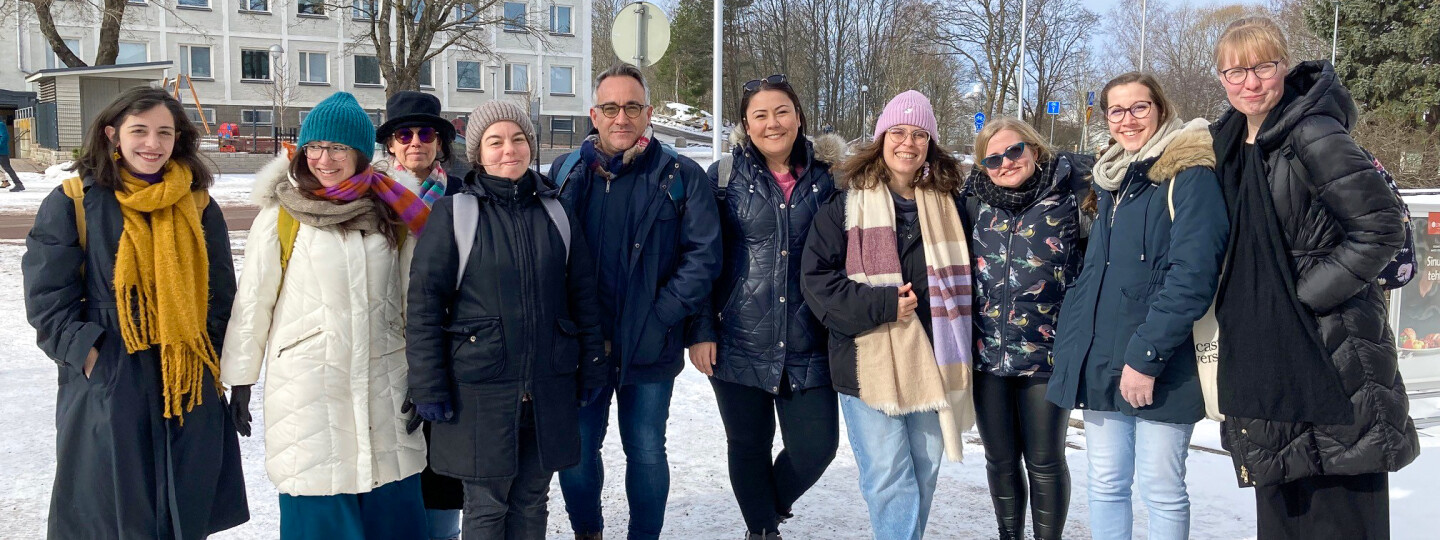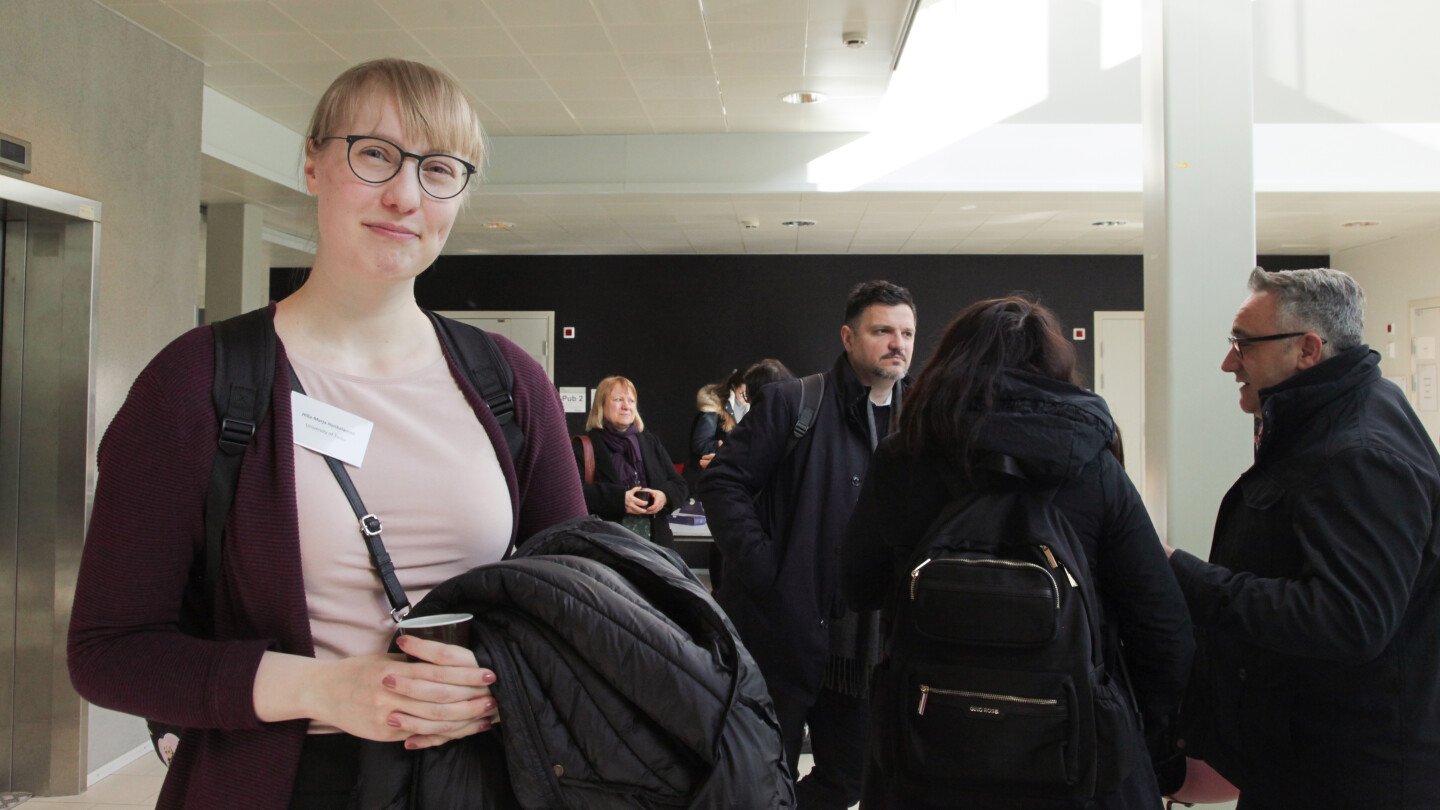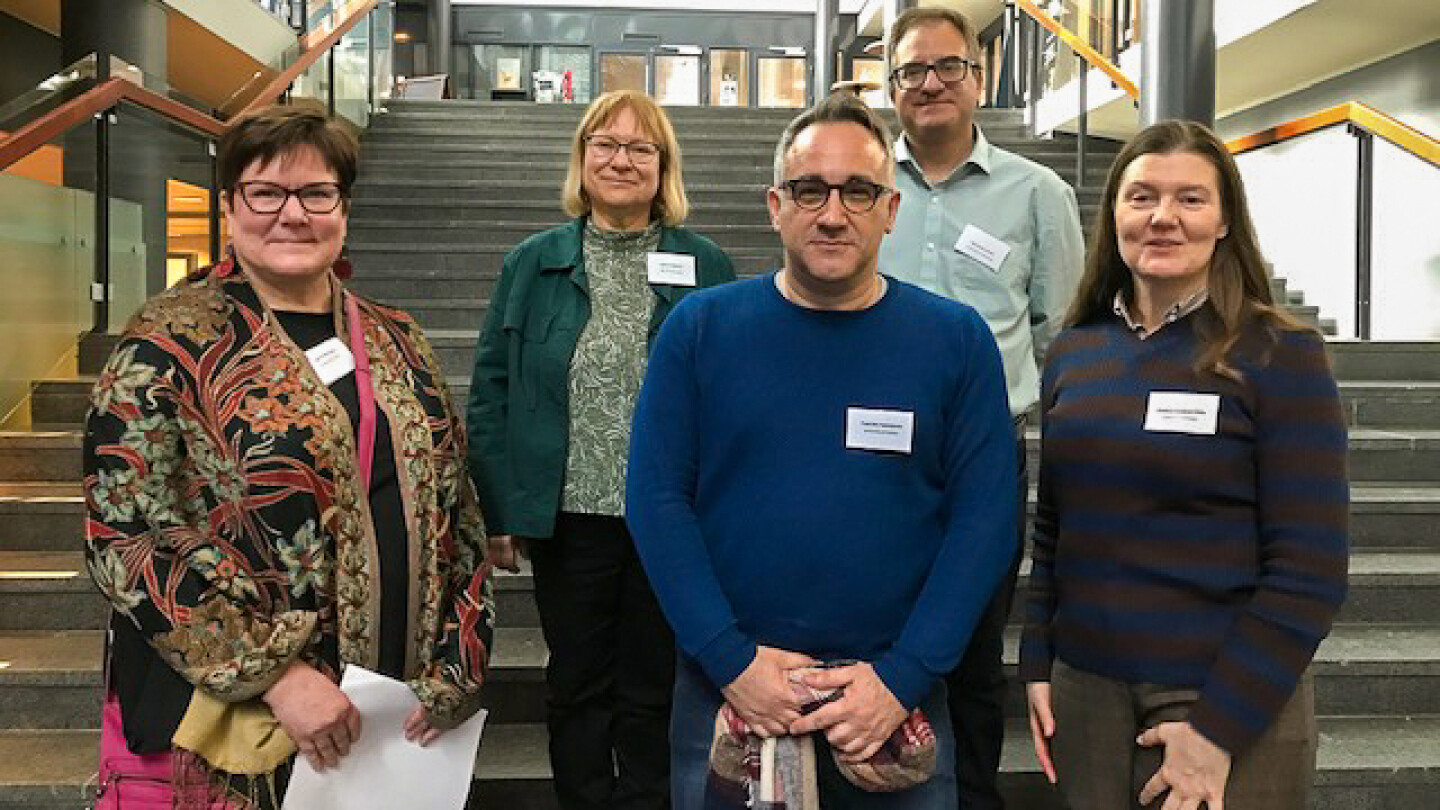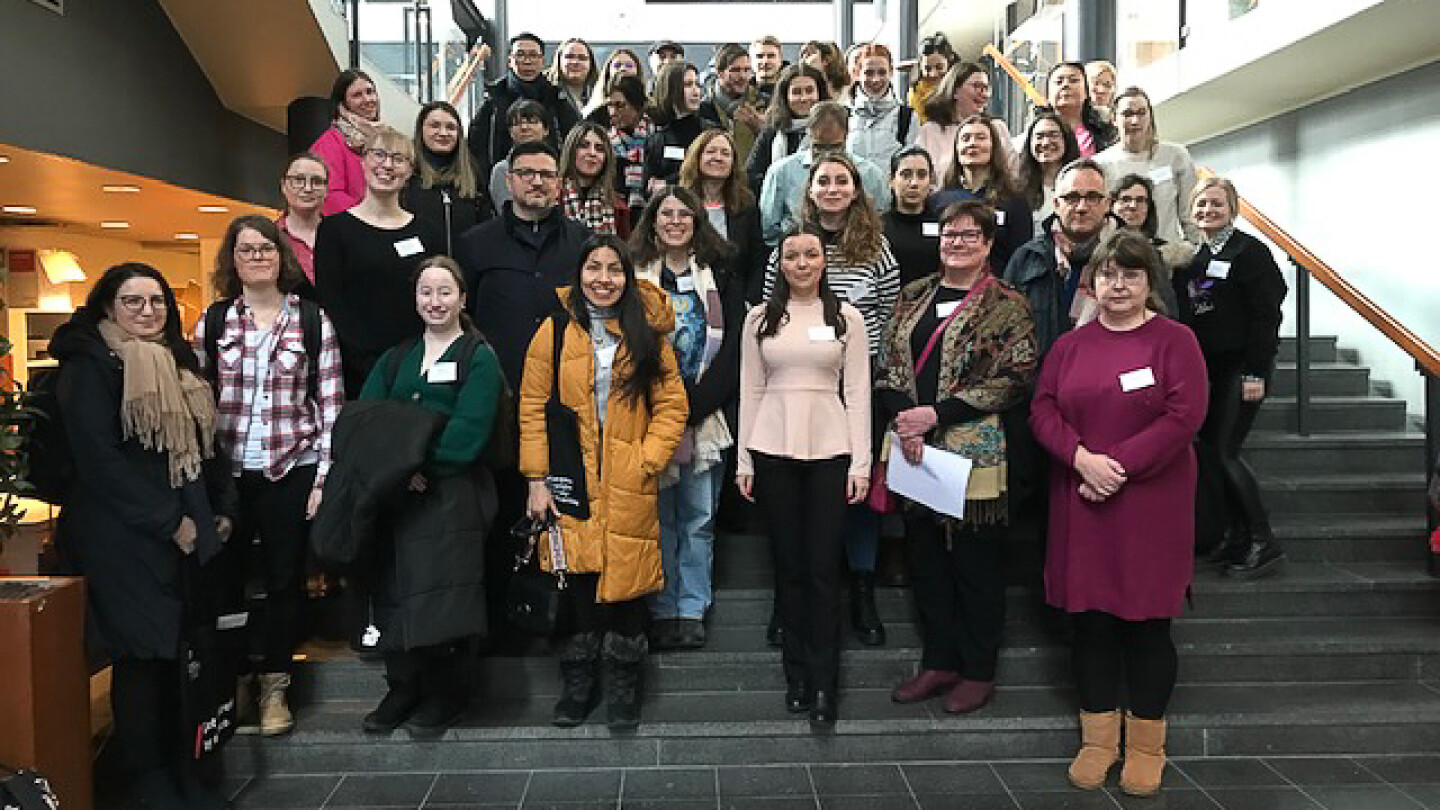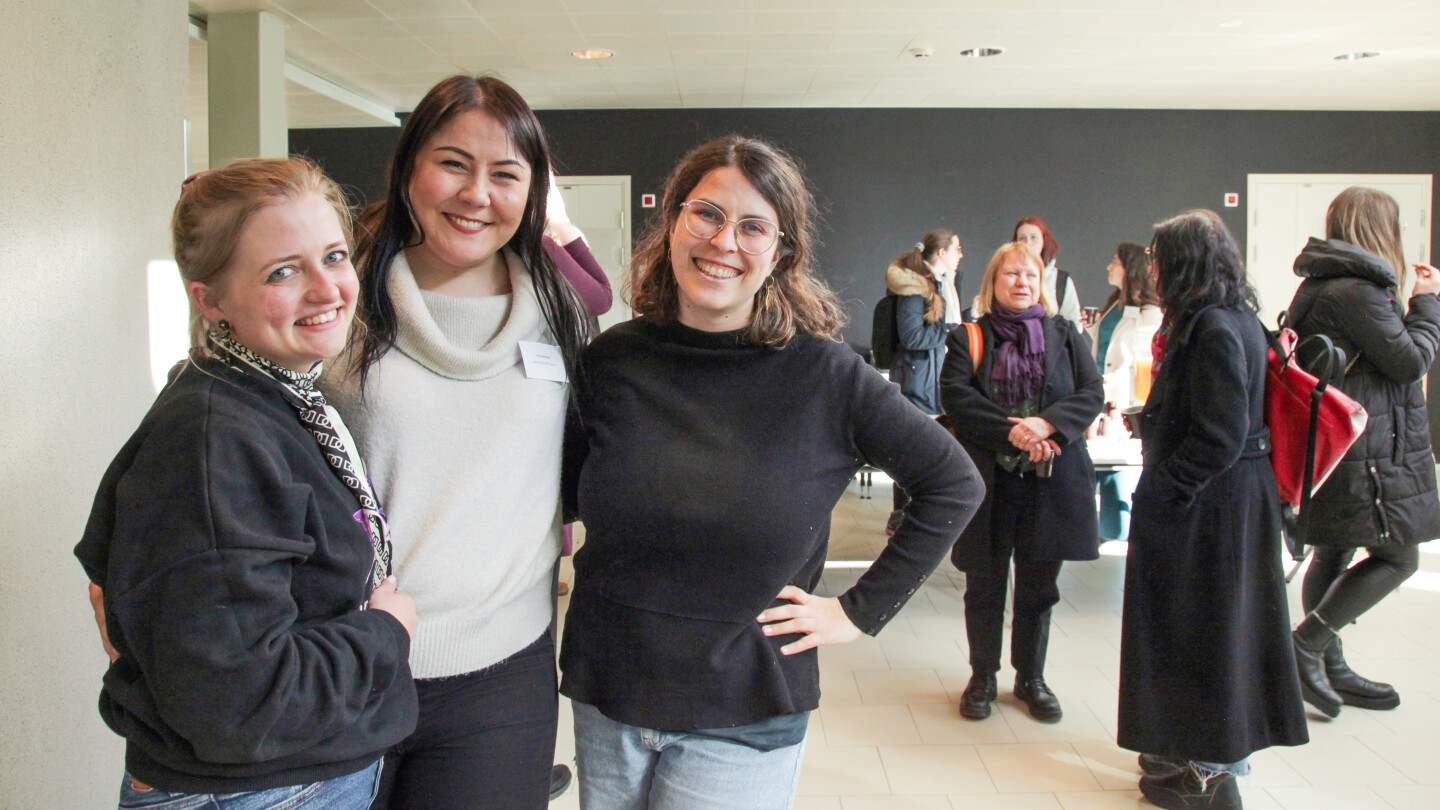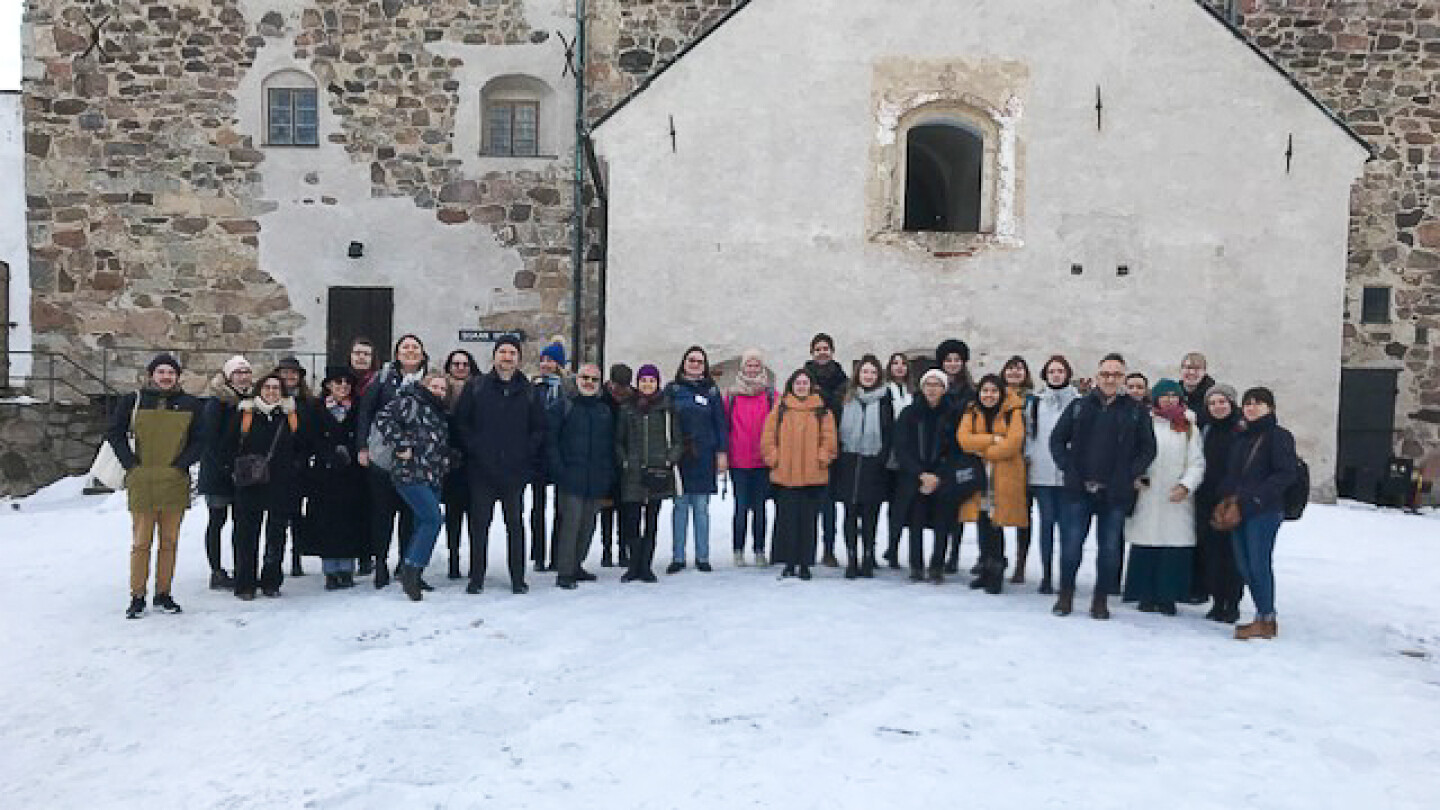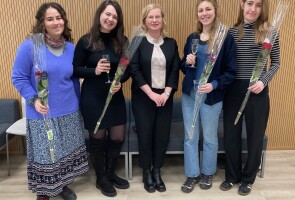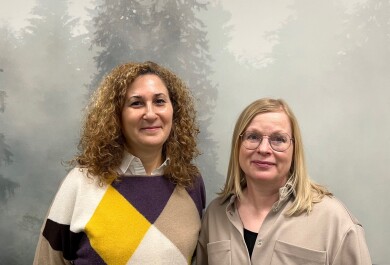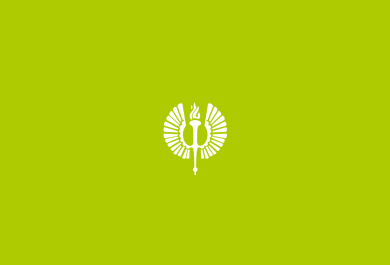New research ideas and perspectives, new partners and a renewed enthusiasm for one's own subject area rose up as result of the EC2U Winter School of Multilingualism, European Languages and Societies organised by the University of Turku. Multilingualism attracted more than an expected number of students, researchers and teachers to snowy Turku.
A lively buzz of chatter filled the lobby of the Publicum building of the University of Turku. The winter school, now in its third day, has inspired a lively exchange of words among the participants.
Lectures have covered topics such as translation and journalistic texts, historical overview of languages spoken in Bosnia and Herzegovina, less or more widely studied languages, multilingualism in schools during the era of Covid-19, and the development of new tools for language learning. Plenaries covered topics such as multilingual practices in European business firms, foreign language policy in higher education in Finland, and female writers with migrant background. The workshops have given doctoral researchers the opportunity to present their own studies.
"The winter school in Turku has enabled us to hear about research conducted in southern Europe, which has traditionally required us to travel to there," said Marjut Johansson, Head of the School of Languages and Translation Studies at the University of Turku.
Hilla-Marja Honkalammi, a Master's degree student in French at the University of Turku, particularly remembered the code switching lectures, which explored the flexible use of two languages in parallel, even in the middle of a sentence.
"We heard examples of the flexible use of Spanish and English in Gibraltar and how a school in Algeria uses more than one language in a classroom," said Honkalammi.
Breaks and evenings used for networking
The winter school was organised by the School of Languages and Translation Studies at the University of Turku.
"The winter school has shown the Department and the University that EC2U works and has provided a great deal of inspiration. We have been able to brainstorm face-to-face and think together about future joint projects. Organising the winter school was a big effort on our part, but well worth it," said Johansson.
Tiina Tuominiemi, the project coordinator who organised the winter school, was also visibly pleased with the interest it attracted. More than 60 people signed up, well above the number originally expected.
"I’m delighted of the positive and inspired atmosphere. Students and researchers from different countries in an environment that gives immediate feedback to their research and enables them to see individual research topics in a wider picture. These encounters will definitely encourage students and researchers for co-operation," Tuominiemi says.
Frederikos Valetopoulos, Professor of Linguistics at the University of Poitiers, says that winter and summer schools have many important meanings. They allow researchers and teachers to discuss a very specific topic, to network, to find partners for research projects and even to generate new research topics.
"For doctoral researchers, this opens up an excellent networking opportunity. Winter schools also allow them to present their research and establish a position in the academic community," says Valetopoulos.
One example is how a doctoral researcher supervised by Valetopoulos has built up a network through the various EC2U winter schools. Dorota Zygadlo from the University of Poitiers met Costanza Marini, a doctoral researcher from the University of Pavia, at the winter school in Iasi, who in turn met Ines Brekalo from the University of Poitiers at the winter school in Coimbra. In Turku, the trio of doctoral researchers took their collaboration a step further.
"We all teach Slavic languages, and the winter schools are places where we can meet other teachers of Slavic languages. We learn from each other. For example, Ines speaks Croatian as a home language, and it is interesting to hear how differently a native Croatian speaker teaches the language compared to those of us who have studied Slavic languages," said Marini.
Visits to other universities spark ideas of career opportunities
The winter school also provides an opportunity to visit different countries, Turku being the first joint destination for the trio in Finland. Brekalo said that the Finnish language lessons organised during the winter school in Iasi provided a good basis for the visit.
"We got to know how different universities work and learned about job opportunities at different universities. In Finland, we also get to see how multilingualism works in practice, because in Finland multilingualism is part of everyday life," says Marini.
Master's degree students also participated in the winter school, especially from the new EC2U European Languages, Cultures and Societies in Contact Master's programme. The teacher trio was pleased that a large number of Master's students were also taking part in the winter school. For them, the winter school not only opens up contacts with other Master's students, but also gives them an idea of a career as a researcher.
"And we, the teachers, are inspired by the Master's students," said Brekalo.
Text: Erja Hyytiäinen
Photos: Erja Hyytiäinen and Tiina Tuominiemi
